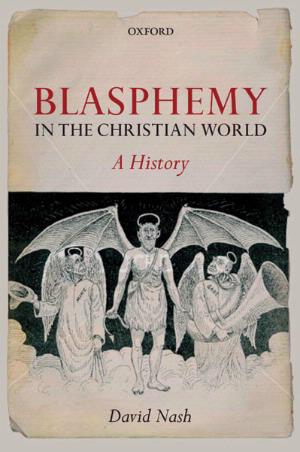 This is a history of blasphemy within the Christian world, so a large amount of recent scandal around religious offence is beyond its remit. But Nash must certainly have been struck by the extent to which his book coincided with a growing religious challenge to freedom of expression. After the 1960s battles over free speech, it seemed that the issue of blasphemy had been settled, and that the offence would slide into irrelevance, even if it remained punishable by law. Things are different now. The written, performed and broadcast word is under greater threat from violent religion than it has been for a generation, and no creed is so mild or imbued with a respect for civilised values that it doesn’t want to join the attack.
This is a history of blasphemy within the Christian world, so a large amount of recent scandal around religious offence is beyond its remit. But Nash must certainly have been struck by the extent to which his book coincided with a growing religious challenge to freedom of expression. After the 1960s battles over free speech, it seemed that the issue of blasphemy had been settled, and that the offence would slide into irrelevance, even if it remained punishable by law. Things are different now. The written, performed and broadcast word is under greater threat from violent religion than it has been for a generation, and no creed is so mild or imbued with a respect for civilised values that it doesn’t want to join the attack.
Nash begins in the Middle Ages, when blasphemy was punished with Old Testament levels of ferocity. However, the mutilations, stonings and banishments were not necessarily an index of outrage felt by the pious at the profane. Rather it was a measure of incomprehension at what seemed entirely without logical justification. Your acceptance in society was legislated by God and chartered in the word of the Bible. Therefore, as Nash argues, to deny God was seen as an almost unhinged attack on the society that nurtured you. It was such an incomprehensible crime that it was often associated with drunkenness and the need to maintain the public peace.
As modern societies took shape, that worldview declined, but the watchfulness of religious authority did not, and pious feelings continued to be as easy to hurt as ever. Each side, the blasphemous and their prosecutors, was caught in a cycle of mutual provocation. Because blasphemy, as Nash points out, is not the same thing as heresy. The latter is a matter of philosophy and first principles. The former is about roused passions and injured amour propre. It has the attraction of allowing the allegedly injured party the seductive allure of righteous anger. It cannot exist unless someone is willing to take offence. Hence the enduring suspicion that those who wish to police blasphemy willingly collude in their own outrage.
But Nash shows that the blasphemers and their religious opponents may have been unwittingly responsible for one of the most fruitful and intriguing developments in human thought. From the Middle Ages onwards, the successful prosecution of blasphemy led the authorities to try and relate the spoken word to inner feelings. They wanted to show that what someone said was the sincere expression of their essential self. To achieve this, they had to find the language to describe the endlessly chaotic hidden mental worlds of other people.
“This arrival [through the prosecution of blasphemy] of professional systematic inquiry into the hearts and minds of western Christendom was an enormous innovation,” says Nash, and he may not be far overstating the case. Clerical dignity is an eternally tempting target, and the human desire to undermine the majesty of the Church must surely be incorrigible. The attempt of Christianity to stop the persistent flow of ridicule has been a Sisyphean endeavour for centuries. In the course of this ancient rivalry, blasphemers and their targets constructed a psychologically sophisticated way of describing human consciousness through the unlikely catalyst of the obscene joke.
Blasphemy in the Christian World is published by Oxford University Press

